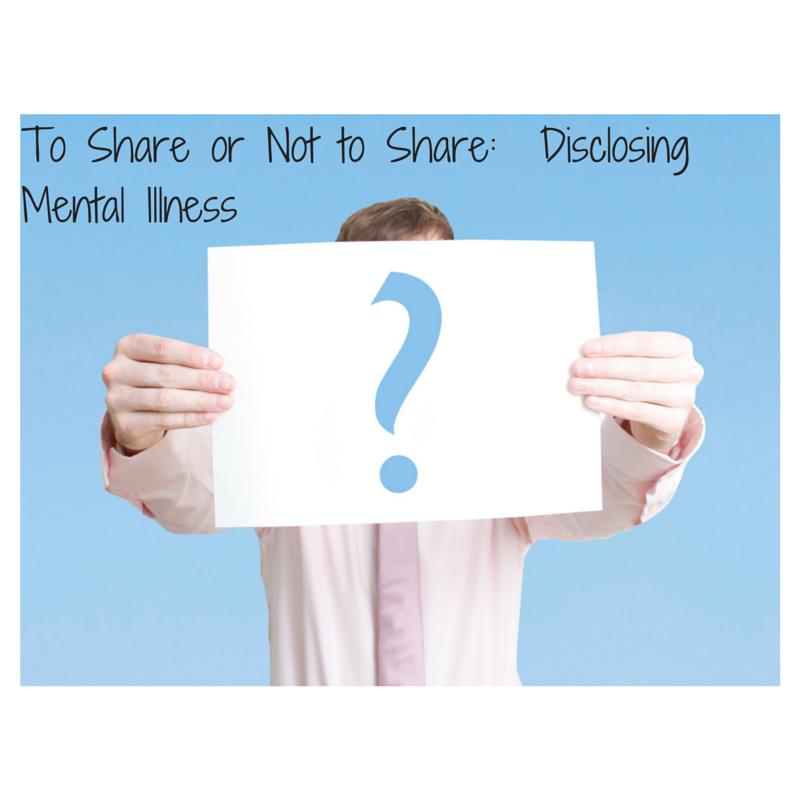To Share or Not To Share: Disclosing Mental Illness
The stigma and misunderstanding of mental illness is a hot topic in the media as of late. Efforts are being made nationwide to change the way it is viewed and to help offer awareness to the public. Currently, our society struggles with supplying enough mental health resources, not only to those who need to be treated, but to inform others about the subject.
Many have heard people say things like “He/she is bipolar,” “He/she is borderline,” and more. Statements like these have been casually tossed around for many years. The problem is that these statements are inaccurate reflections of a person because they label them in a way that suggests they are the sum total of the descriptor. Someone can be described as experiencing a variety of moods by saying, ‘Sarah is depressed’, or ‘Sarah is manic’ and the difference is that these descriptive words are of moods, which are universally understood to be temporary states of mind. Mental illness labels are not temporary, or descriptive of a whole person. The labels can be damaging. It is a nationwide hope amongst clinicians and patients that soon the semantics and stigma will change.
If you or someone you love was recently diagnosed with a mental illness and are having a hard time coming to terms with it, you are not alone. The challenges of mental illness may be compounded for you if you feel it is unsafe to tell others. You may feel isolated or like an outcast. Many people struggle with what it means to them, how to tell others, and what it means for their future. Consider sorting through your feelings with a trusted family member, friend, or counselor. They may be able to help you decide the best way to share with others about your diagnosis.
A few things to keep in mind:
- Aside from trusted confidants, you do not need to tell people all of the details. For instance, someone who may be experiencing bipolar depression, does not necessarily need to disclose that they are feeling on the low end of the bipolar spectrum. Alternatively, they may just feel like explaining they are struggling with depression, without mentioning its connection to bipolar disorder.
- Be patient. When you discuss it with someone who may be unfamiliar with the mental health condition, you need to help them understand that this is a part of your life and that it can sometimes hinder you. Give them a thorough explanation so that they are clear on why you told them, how it affects you, and what you need from them. You may have to educate them. Remember that many people lack knowledge about mental illness.
- Give them some of the positives when explaining your experiences. Tell them what challenges you have overcome and what you have learned. Explain to them what you do for treatment and how it helps. This will not only help them to understand, but it may serve as a reminder to you of your coping skills and resources.
- Allow them to ask questions. What you tell your confidants may surprise them, so tell them to ask you for clarification if they need it. Advise them that you are, nevertheless, still prone to human condition and that not every misstep should not be blamed on the mental illness. Reassure them that you are in control, not the mental illness.
- Most importantly, remember that you are not your mental illness. It is only one aspect of you. Having confidence in yourself will make all the difference in how you, and others, experience the condition.
Click here for more information on Anxiety Treatment.





